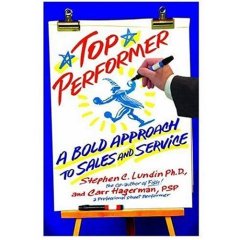
Bill McKibben’s penetrating book, Deep Economy, posits the idea that neighborliness may well be the long term answer to global warming. Don't roll your eyes. If you know who McKibben is, it is likely that you will sit up and take note. In this carefully researched and reasoned treatise he points out that the unexamined cultural dictum of “more=better” is putting all of us on the fast track to misery. Unbridled consumption is leading us deeper and deeper into alienation and to what he terms “hyper-individualism.” Wealth is driving us into our separate boxes, monster homes and private dens. MORE is not making any of us more fulfilled. More is making us depressed. And, the more we have, the more isolated we have become from one another, from our communities, from our neighbors. Our huge gains in economic growth and development have come at a staggering price to the planet and also to personal happiness. Read this book to understand how all this has come about, or better yet . . . what to do about it.
It is his solution that I find wonderful—and if we thought about it—the most obvious. We have lost touch with each other. And, it is only in community, being in touch with each other--with our local environments that can provide a return to health and sanity, and in effect 'the good old days'. If economics's blind eye to common sense can be opened, then perhaps liberal and conservative, Democrat and Republican, atheist and religious can unite on a common theme: let us relearn how to be neighbors, to be neighborly. Think globally, eat and shop locally. His vision is an obvious and simple one in which there is a gradual shift to economies that are more local in scale, requiring fewer resources, and causing less ecological disturbance.
An example of how this might work can be found in a fascinating statistic. Sociologists studying shopping behavior reported “that consumers have ten times as many conversations at farmers’ markets as they do at supermarkets—an order of magnitude difference”(p. 105 ). The import of this is that a change in economic activity can produce an enormous change in social life. And aren't we really longing to be with others, but don't know how anymore? An awareness of interconnectivity and interdependence makes for a better life. McKibben shows us that this shift is doable!
The book reminds us of the old Chinese adage: "If we don't change the direction we're going, we will end up where we're headed."
This book fills me with hope and actually gives me some concrete ideas about how to be part of this revolution. Please read this book.
. . . which brings me to an overdue note of appreciation.

I have a debt of gratitude. I first learned about McKibben's life-changing book on the pages of Headbutler.com a remarkable resource. Jesse Kornbluth, former editorial editor at AOL and the genius behind this goldmine of wise advice, has become my person concierge of the good life. His reviews of books, movies, music and popular culture are lucid, funny and bulls-eye on target for what is worth knowing these days. You can trust his opinions. Do yourselves a favor and check out the web site, or better yet, sign up for his weekly post, which is an unobtrusive and entertaining "teaser" for his reviews of the week. His archives of the past three years are a smart person's reading list. I particularly love his "Lists" of books for special occasions. Right now he has Books of Summer 2007. A few weeks ago he posted Books for 2007 Graduation Gifts. Spend an hour browsing his site for the best shopping advice anywhere. With so many voices and advertisers telling us "what we MUST read" it is a relief to find a trustworthy and feisty friend who knows GOOD when he reads it, and shares his prodigious findings in wildly readable and short reviews. You will soon see why his title as Head Butler is perfect.
Patricia Ryan Madson May 25, 2007












